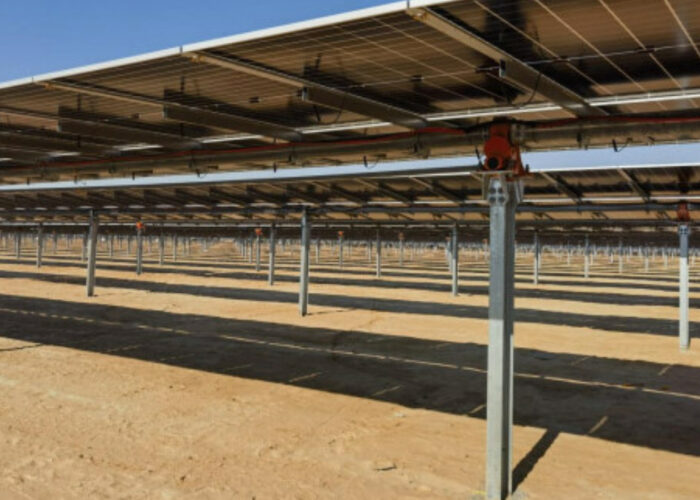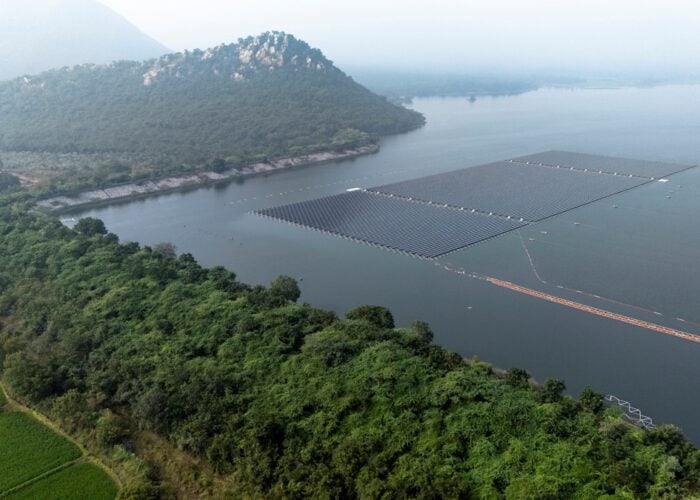REC has updated the status of its polysilicon expansion at Plant III, saying it has formally accepted and taken control over the entire fluidized bed reactor (FBR) area and all related equipment at the new factory under construction in Moses Lake, WA.
While the first reactor test runs have been successfully completed, the company cautions that during final stages of the commissioning in the silane gas production area, quality issues were encountered with certain standard prefabricated carbon steel pipes. Control measures and repairs were begun immediately.
Try Premium for just $1
- Full premium access for the first month at only $1
- Converts to an annual rate after 30 days unless cancelled
- Cancel anytime during the trial period
Premium Benefits
- Expert industry analysis and interviews
- Digital access to PV Tech Power journal
- Exclusive event discounts
Or get the full Premium subscription right away
Or continue reading this article for free
Based on the final conclusions of the analysis undertaken during the last few days, start-up of the silane production will be delayed until late January 2009, the company says. This will negatively affect production of polysilicon and, to some extent, wafers and solar cells in 2008 and early 2009.
In discussing the quality concerns related to the prefabricated carbon steel pipe welds in the silane gas section, the company says that its inspections revealed that the level of weld defects is above industry standard, and the quality falls outside the guaranteed standard delivery specifications for such “off-the-shelf” pipes.
All defective pipes have been supplied by one particular fabricator with a “seal of approval.” The supplier has taken full responsibility and has agreed to cover costs related to necessary weld repairs to ensure a safe start-up.
REC says that it has, together with Fluor and a third-party engineering firm, spent the last few days finalizing the analysis of the issue. Based on the current weld repair rate and the conclusion of the analysis, the start-up of commercial production has been moved to the end of January 2009. Aside from the weld repairs, the construction of the plant is complete.
“As a responsible producer we have a rigorous mechanical integrity program which allowed us to discover the defective workmanship,” explained Erik Thorsen, REC’s president/CEO. “The delay is obviously very unfortunate given our tight polysilicon situation, and we are working hard to mitigate and limit consequences as much as possible.”
Simultaneously, start-up activities continue in the FBR section of the plant. Last week, the first two reactors were started on inert gas. This confirms that control systems and reactor characteristics are working in line with expectations. Next week, REC says it intends to start running full tests of the FBR reactors on silane gas from existing plants.
“As we have taken over the FBR-section of the plant, we will continue to prepare for start-up of commercial production and the coming ramp-up period in parallel with the ongoing weld repairs,” Thorsen says. “We remain comfortable with FBR from a technology perspective and its low-cost and high-quality capabilities. However, there is always risks related to starting up new technology.”
Plant III was previously scheduled to produce up to 400 metric tons of polysilicon by the end of 2008. Given an expected start-up of commercial production toward the end of January 2009, this year’s production will be reduced to only minor test volumes, according to REC.
For 2009, the production is expected to be about 5000 metric tons; the plant is designed to handle a 6500-metric ton annual production capacity of 6,500 MT.






